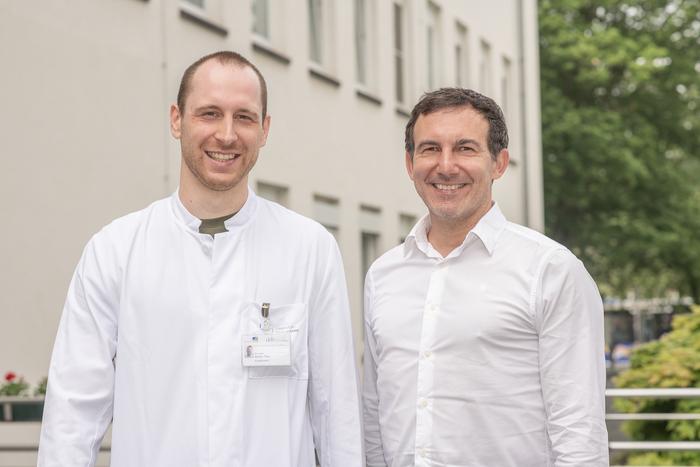Serum SHOX2 methylation may help predict response to immunotherapy in melanoma patients, a new study suggests.
The results, which appear in Clinical Chemistry, may help pave the way toward more individualized treatment for melanoma patients.
For the study, the researchers analyzed the blood of both patients with and without tumors for biomarkers and found that a certain biomarker (SHOX2 methylation of circulating cell-free DNA in blood plasma) derives directly from the tumor cells. A total of 42 patients undergoing palliative and 55 patients undergoing adjuvant anti-PD-1 immunotherapy were analyzed. The values were compared with 126 control patients without cancer.
When researchers examined the SHOX2 methylation status in the blood plasma before and four weeks after start of treatment to predict and evaluate response to therapy and survival, they found that SHOX2 methylation levels were elevated in 60% of melanoma patients, while 98% of the control group showed low levels. In addition, patients with elevated levels before treatment responded particularly well to therapy.
‘The results of our study suggest that SHOX2 methylation in the blood could be a promising predictor of response to anti-PD-1 therapy in melanoma patients. Therefore, testing for this biomarker can support individualized treatment decision making by indicating the effectiveness of anti-PD-1 therapy at an early stage,” explains study author Simon Fietz, MD, an Assistant Physician at the Clinic for Dermatooncology & Phlebology at the Centre for Skin Diseases at the University Hospital Bonn (UKB) in Germany, in a news release, in a news release. “Additionally, this biomarker test also helped us to detect metastases in patients undergoing adjuvant therapy at an early stage.”
A larger follow-up study is now underway at the UKB, in which various biomarkers are being combined. “By combining them, we aim to achieve even greater precision and reliability in diagnostics in order to improve patient care for those affected by melanoma,” explains Dr Fietz.
PHOTO CAPTION: (from left) Dr Simon Fietz, assistant doctor at the Clinic for Dermatooncology & Phlebology at the UKB’s Centre for Skin Diseases and PD Dr Dimo Dietrich, scientist at the Clinic and Polyclinic for Otorhinolaryngology at the UKB
PHOTO CREDIT: University Hospital Bonn (UKB) / R. Müller


